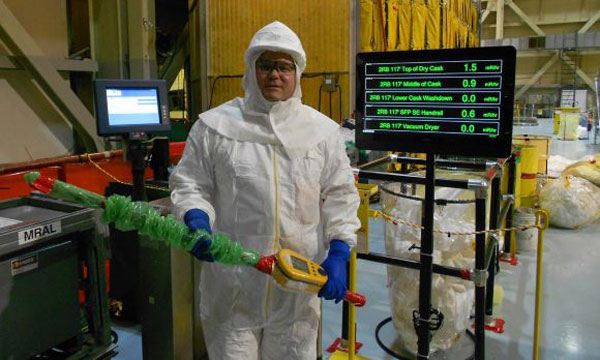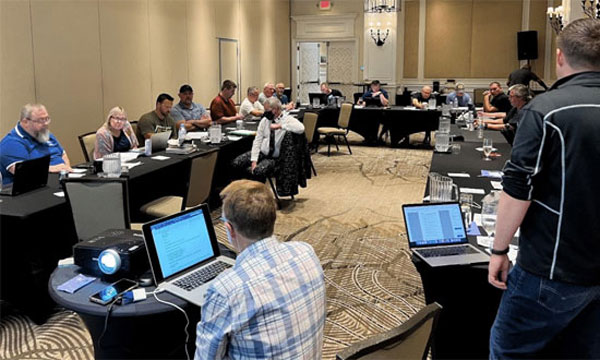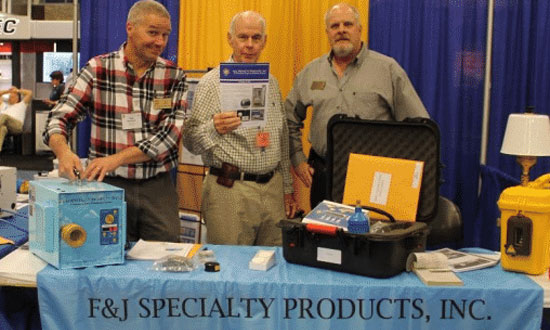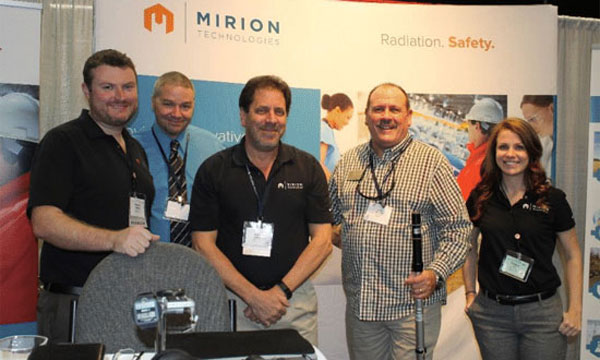A Brief Overview of the NRRPT
The need for the NRRPT evolved out of the nuclear industry's desire for responsible and competent radiation protection technologists in the pre-Three Mile Island era. The NRRPT was established in 1976 through the sponsorship of the Health Physics Society and the American Board of Health Physics. Several senior HPS members were instrumental in founding the NRRPT. The NRRPT maintains ties with the HPS and ABHP and meets regularly in conjunction with the Mid-Year and Annual HPS Meetings.
Read moreThe objective of the NRRPT is to encourage and promote the education and training of radiation protection technologists and, by so doing, promote and advance the science of health physics. To do this, the NRRPT has established a credentialing exam. This, criteria based, 150 question exam covers broad-based radiation protection knowledge of accelerators, university health physics programs, medical health physics, power reactors, government radiological facilities, radioactive waste disposal, transportation of radioactive material, fundamentals, and regulatory requirements. The NRRPT also provides incentives and services to encourage personnel to maintain and expand radiation protection education and training. The NRRPT has been endorsed in various ways by several organizations. The Institute for Nuclear Power Operations (INPO) and the Department of Energy (DOE) have openly recommended that nuclear facilities encourage their personnel to seek NRRPT Registration. The Nuclear Regulator Commission (NRC) provides support by having a staff member assigned to the NRRPT Panel of Examiners. HPS members established the NRRPT and the majority of NRRPT Board of Directors and Panel Members are active members of the HPS national and local chapters. Nuclear facilities (i.e., power plants, government facilities, universities, medical facilities, and military services) provide incentives for personnel to seek and maintain registration. Numerous nuclear facilities provide financial support for Board of Directors and Panel of Examiners to attend biannual meetings. Although registration does not constitute licensing nor does it guarantee the adequacy of an individual's performance, registration does test competency in fundamentals and operational topics. Registration has been established as a recognized mark of motivation and achievement of radiation protection personnel. The professional credential provided by the Registry has clearly stimulated interest in radiation protection training programs. Some companies specifically require registration for hiring, promotions, and salary grade increases. Some commercial power plant contractors pre-employment screening exams have been waived for NRRPT Registered personnel.
What is a Radiation Protection Technologist
The NRRPT Code of Ethics
The Registered technologist, while active in the field of radiation protection, has a commitment to maintain technical competence. This shall be accomplished by remaining acquainted with scientific, technical, and regulatory developments. In order to uphold the integrity of the profession of radiation protection implied in this registry, relations with others (including supervision, colleagues, governmental agencies, and the general public) shall be based upon and reflect the highest standards of professional ethics and conduct. Registration may be revoked for actions considered by the Board to be in violation of the "Code of Ethics." Any person for whom such actions is contemplated shall have the right of appearance before the Board.





